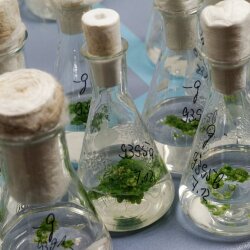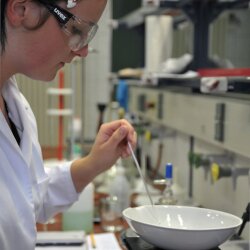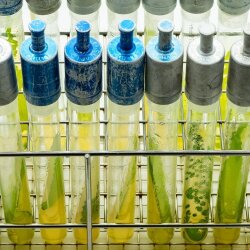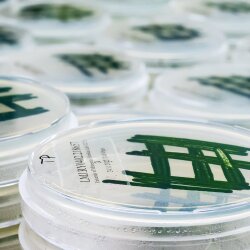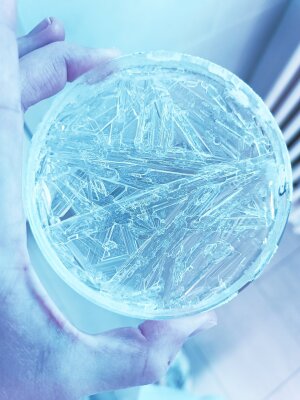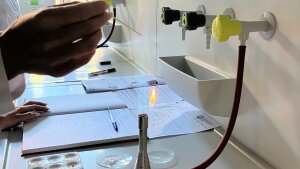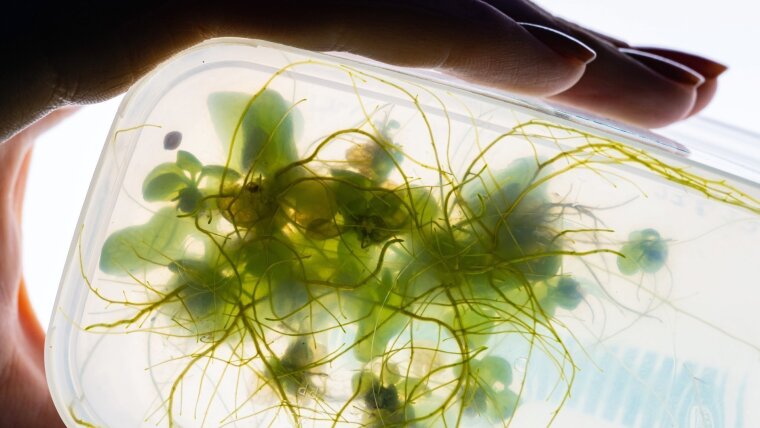
Biology laboratory technicians work at the interface between science and practice. They carry out experiments and investigations on animals, plants and microorganisms on a self-employed basis, using modern laboratory technology and digital analysis methods. Typical tasks include the preparation of samples, the creation and maintenance of cell and tissue cultures as well as carrying out experiments to analyse biological processes.
In addition to the practical work in the laboratory, careful documentation, evaluation and presentation of the results are also central activities. Biology laboratory technicians thus make a significant contribution to gaining new insights in research and developing innovative solutions in subject areas such as Medicine, the environment or agriculture.
Important information about this traineeship
-
Training content
Petrischale
Image: Stefanie Müller-KröckelPractical training at the University of Jena teaches the following knowledge and skills, among others:
- Carrying out microbiological, biochemical, cell culture and botanical work
- Handling and experiments with animals in the zoological-pharmacological field in compliance with the Animal Welfare Act
- Carrying out activities in the (subject) area|field of molecular biology and genetic engineering
- Application of basic chemical-physical and diagnostic methods
- Application of the latest analytical methods and measuring techniques, as well as handling the microscope
- Planning, preparation and execution of experiments, as well as analysing and documenting results using laboratory-specific procedures
-
Duration and location of the training
Mikrobiologie Gebäude
Image: Anne Günther (University of Jena)The training programme lasts 3 ½ years.
The practical training takes place at the Faculty of Biological Sciences at the University of Jena.
The theoretical knowledge is taught at the vocational school centre in RadebeulExternal link.
Note: A stay at a boarding school is necessary
